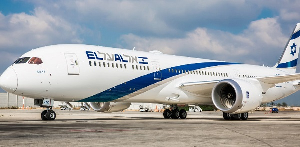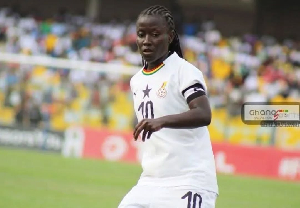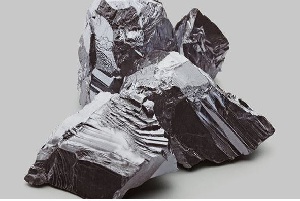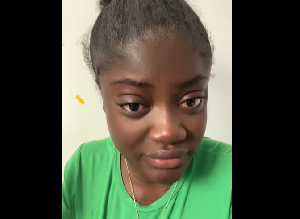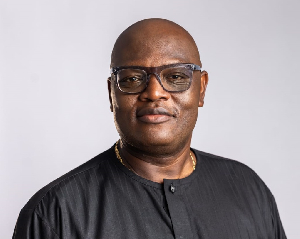On October 31, Ivorians will elect a new leader. President Alassane Ouattara is running for a third controversial term. The opposition is urging supporters to shun the poll -- a political crisis appears imminent.
There is calm in Ivory Coast just days before voters go to the polls. This comes after protests in August left a dozen people dead and more than 100 injured. Roadblocks and burning cars were to be seen at the time, but now life is back to normal. With one difference: Police cars are patroling almost every crossroads in the economic hub of Abidjan, says Thilo Schöne, who heads the Ivory Coast office of the Friedrich Ebert Foundation (FES), which is close to Germany's Social Democratic Party.
"The current situation is worrying," Schöne told DW. "We are heading towards an election that is not perceived as legitimate by many political actors, who are worried about how free and democratic the election will be."
He said everyday life is interestingly calm at the same time. "The opposition has not managed to mobilize," he said.
After the sporadic protests in August, the situation has been under control for about five weeks now.
Calls to boycott vote
On Thursday, two leading opposition candidates, Pascal Affi N'Guessan, a former prime minister, and Henri Konan Bedie, a former president, called on their supporters not to participate in the electoral process.
The presidential election on October 31 is controversial for several reasons.
Out of 44 would-be candidates, the electoral commission allowed only four contestants to be on the ballot -- Alassane Ouattara, 78, Konan Bedie, 86, Affi N'Guessan, 67, and Kouadio Konan Bertin, 51.
The candidacies of ex-President Laurent Gbagbo, who lives in exile, and of ex-Prime Minister Guillaume Soro were rejected by the electoral body, leading to protests. Although the Ivorian constitution allows only two terms in office, incumbent Ouattara received the Constitutional Court's green light to run for a third term. The court reasoned that due to a constitutional amendment in 2016, Outarra's first two terms in power did not count.
"Alassane Ouattara's third candidacy is completely inadmissible and unconstitutional; Ouattara knows that, too," Simone Gbagbo, vice president of the opposition Ivorian Popular Front (FPI), told DW. Gbagbo, the wife of former president Laurent Gbagbo, said the law must be respected. "In the current situation, we cannot and will not participate in any election."
Legitimacy of election questioned
Opposition politician Guillaume Soro agrees. "We demand that this election does not take place and that the politicians get together to define an ideal framework for a democratic, transparent and inclusive election that will enable lasting peace in our country," he said.
As in the case of ex-President Gbagbo, the electoral commission rejected Soro's bid to run as candidate for the presidency because he had been sentenced to prison in absentia. The sentence on charges of embezzling public funds and money laundering was handed down in late April. In 2018, Ivorian authorities sentenced Gbagbo to 20 years in prison for allegedly misappropriating funds from the Central Bank of West African States (BCEAO) during the 2010-2011 post-electoral crisis.
Gbagbo was also accused of committing crimes against humanity and sent to The Hague. The International Criminal Court, however, acquitted him in 2019.
The African Court on Human and Peoples' Rights in September urged Ivory Coast to reinstate Gbagbo in the presidential election. Those pleas seem to have fallen on deaf ears.
Ouattara's challenger not a stranger
Now it appears that Ouattara's primary challenger is Henri Konan Bedie.
Bedie has already once been president of Ivory Coast, from 1993 to 1999. Ironically, in 1999, he forbade Ouattara to participate in the elections and was overthrown in a coup the same year.
In 2010, he then supported Ouattara in the presidential elections to oust Laurent Gbagbo, who was president at the time.
Bedie's chances are good if there is a runoff vote between him and Ouattara. He will likely receive the votes from other opposition contenders.
The disturbing thing about the election is the personal conflicts between the three big players, said Florian Karner, country representative of the Konrad Adenauer Foundation (KAS), which has affiliations with Angela Merkel's Christian Democratic Union, in Abidjan.
"These players have been shaping the political business for decades, and perhaps that is where the problem lies," he says, adding that the election campaign was characterized by pride and seniority. "No one wants to back down. The country is getting caught in this three-way constellation," said Karner.
No repeat of 2010
The calm before the election could, therefore, be deceptive. "I cannot say how the country can avoid outbreaks of violence and clashes. There is not the slightest sign of dialogue between the president and the opposition," said Karner.
Nevertheless, he does not believe that there will be a crisis like that of the 2010 elections when both incumbent Gbagbo and challenger Ouattara claimed victory. Riots broke out -- 3,000 people lost their lives; 450,000 fled the country.
"The difference to 2010 is that there are no two camps with equal power, which are forced to negotiate with each other," explains Thilo Schöne from the FES. "This time, we have a government that controls the army, that has international networks and that tries to show that it is striving to improve the living conditions of Ivorians. The opposition has its leaders abroad, cannot mobilize, and has neglected to present itself locally."
Africa News of Saturday, 17 October 2020
Source: dw.com



